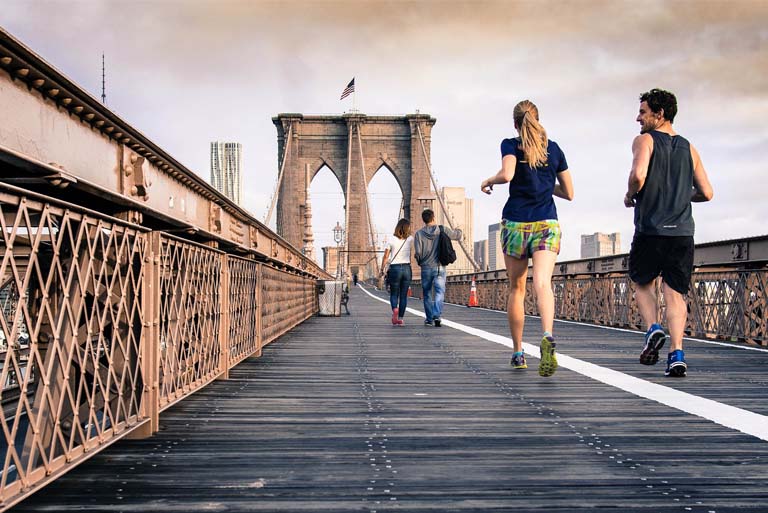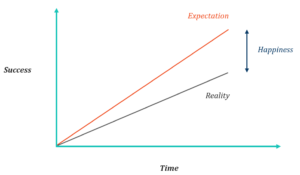
As the first of a 4-part series on Wellbeing and Vitality, this article will look at the importance of self-care and the impact of what happens when we don’t ruthlessly prioritise looking after ourselves first.
High-achieving leaders are often very aware of the importance and impact of wellbeing and vitality and how a positive state of happiness and health is fundamental to our personal and professional success.
What’s really interesting is that however much we might be aware of this fact, actually prioritising this and really taking care of ourselves is something that consistently gets sabotaged. Even by the most insightful of us!
After first-hand experience of a burnout and breakdown from driving myself too hard I know only too well the importance of this and continually notice that achieving more doesn’t always correlate with being well. What I have noticed is that as success and achievement increases often wellbeing and vitality can decline.
So, although we might know in our heads that our wellbeing and vitality is the foundation to personal and organisational success, it is often the thing last on our list.
The question for many of us is, why don’t we prioritise feeling good in ourselves?
We are going to touch briefly of some key areas that can help us take care of ourselves along the journey of achievement so that we can start achieving a greater sense of wellbeing and vitality.
Feel good first
Putting ourselves first is the first step.
Many of us have a lifetime habit of trying to do too much for too many people and spreading ourselves so thin we end up depleted and with nothing more to give. We live in a demanding world with demanding people and the level of change and uncertainty is taking its toll on us all.
There has never been a greater time of need for us as leaders and human beings to take a step back and say ‘stop’. To notice how we really are and the impact the world is having on us and the impact we are having on the world around us.
Putting yourself and how you feel first is the first step to feeling great and achieving more.
The ‘me first’ 15-minute challenge:
Schedule 15 minutes into your diary and sit and ask yourself these 3 questions:
- What do I need for me right now?
- In what areas of my life do I need to put myself first and when am I going to it?
- When I put myself first more, what will the impact be on me and those around me?
1. Get up and move
We are inundated with evidence surrounding the benefits of keeping active. From lowered risks of chronic diseases such as heart disease or type 2 diabetes to boosted self-esteem, mood, energy and happiness.
With busy and demanding lives to contend with, your morning routine, lunchtime stroll or evening class risk being sacrificed to catch up on emails and meet deadlines. The most rounded achievers however learn to prioritise and always make time for themselves and moving their bodies in some way.
Start with an achievable target
- 10 minutes yoga when you wake
- 3 x 20 minutes runs a week
- 250 steps each hour at work.
Even if it’s a 10-minute walk to the shops. Just get up and move.
Set reminders, share your goals, diarise and prioritise this time.
2. Be present
“The secret of health for both mind and body is not to mourn for the past,
nor to worry about the future, but to live the present moment wisely and earnestly.”
Buddha
Being present in the moment has many benefits on your wellbeing and vitality, not least reducing excess worry and over thinking which are two common traits of high achievers.
In addition to immediate stress relief, people who are present are more likely to truly experience and see what’s in front of them without the constant distraction of battling thoughts. This clarity allows you to be more open, creative and socialise effectively.
A few top tips:
Turn off notifications and avoid distractions during meetings, meals and social occasions. Allow your mind to park those niggling worries and thoughts and be in the moment, let yourself fully experience it.
Sign up for a mindful or meditation app and follow some guided practice for being more present in the moment
Like any habit, it takes time and practise to bring ourselves back into the present moment but worth every moment of discipline.
3. Lower expectation
If you’re searching for paths to happiness and compassion it’s perhaps time to lower your expectations. It is well researched and documented that there is a strong correlation between what we hope and anticipate will happen versus reality.
As cognitive computational neuroscientist, Robb Rutledge, University College London, explains:
“Happiness depends not on how well things are going but whether things are going better or worse than expected.”

When our expectations are too high or there’s not enough time to achieve goals, this directly affects our levels of stress and happiness, ultimately our wellbeing and vitality.
4. Nutrition
You are what you eat. A phrase and concept which has spanned centuries however many of us are guilty of neglecting to pay our diet enough attention. The success of convenience and fast food has risen alongside our none-stop lifestyles and when we don’t look after our wellbeing, we can enter a negative spiral and let over-indulgence win.
The nutrients we consume not only form the building blocks of our own beings but affect our long-term health, day to day mood and energy levels; our vitality.
We have ample evidence to support diets which are rich in fruit and vegetables, but when setting goals around nutrition, be sure to make changes positive and not unsustainable or a chore. Use the opportunity to try out some new recipes or rekindle some old classics.
In my experience, it’s possible to distract yourself from any unhealthy ingredients substituted by turning up the flavour!
5. Sleep
Whether you are a good sleeper, an insomniac, a night-owl or perhaps an early bird, very few people would turn down the opportunity for more sleep or better-quality sleep. Our circadian rhythm – often referred to as the body clock – differs between individuals and dictates our sleep pattern, as well as regulating many physiological processes.
Melatonin is a hormone which influences our body clock, helping control when we sleep and wake up, and its production is influenced by light. This is in part one of the reasons why time away from screens is recommended before going to bed. Advice which has the added benefit of allowing your mind to start switching off and relax.
It will come as no surprise that alcohol – as wonderful as it might be at helping us fall asleep – negatively affects the quality of our sleep. Studies show that although you fall asleep quicker after drinking alcohol, it takes longer to start REM (Rapid Eye Movement) sleep, which is the stage of sleep during which we dream, our bodies regenerate and we gain the most rest.
So, the advice here is simple and inevitable. Set a time when you turn devices off or avoid screen time, and maximise the numbers of alcohol-free night’s sleep you get each week.
Get started
There’s an almost infinite number of considerations when it comes to self-care and these suggestions only scratch the surface of a handful.
The important thing is to be focused and identify what you’d like to achieve to feel good through putting yourself first.
Set realistic goals and get past the most difficult stage of habit formulation which is getting started.
—–
Please share your thoughts with us – we love to hear from you – as we are only reflections of one another and we learn together.
—–







